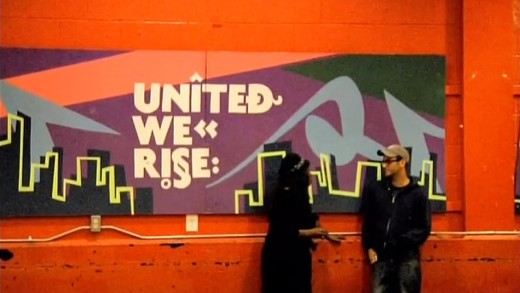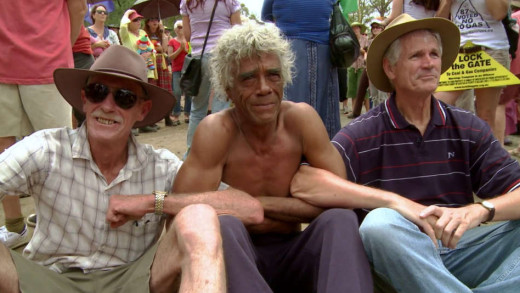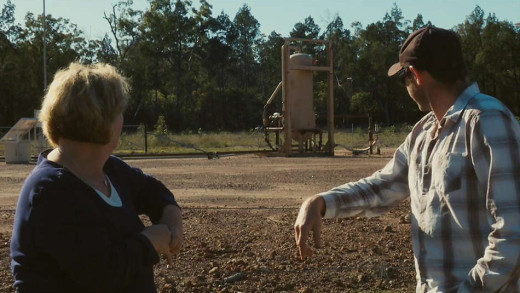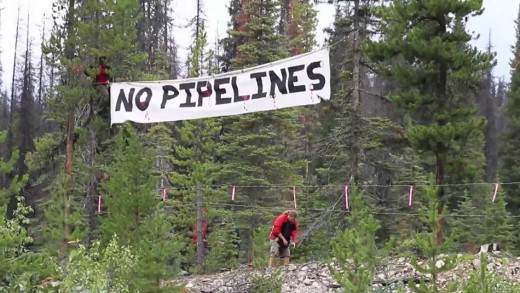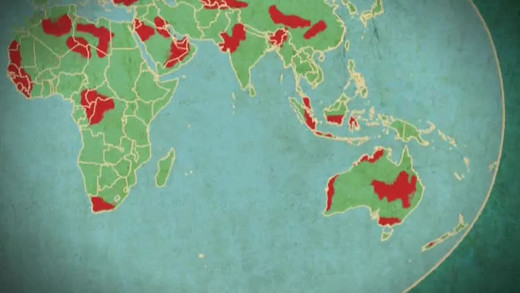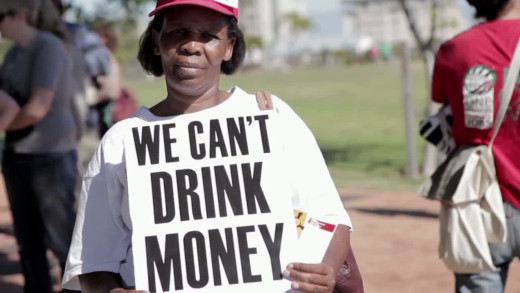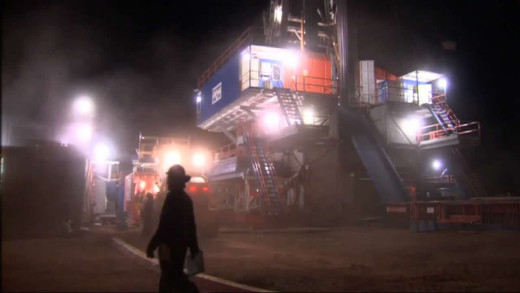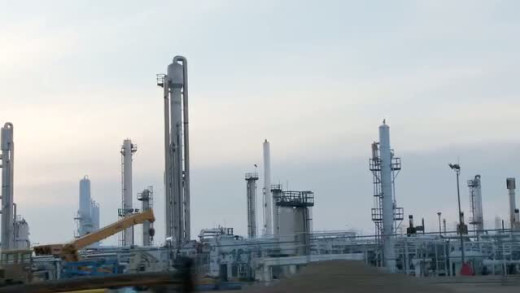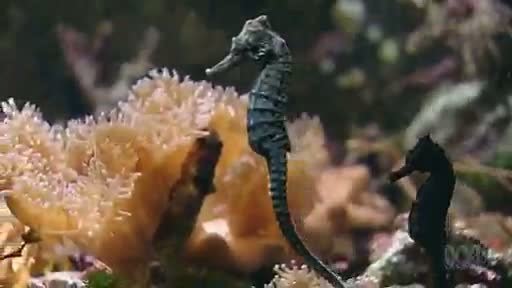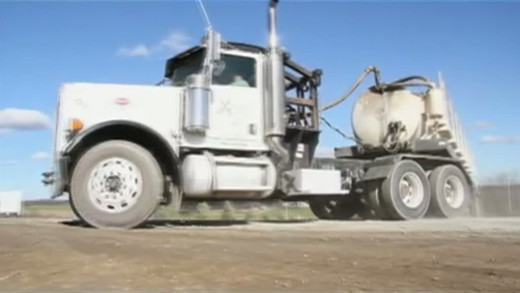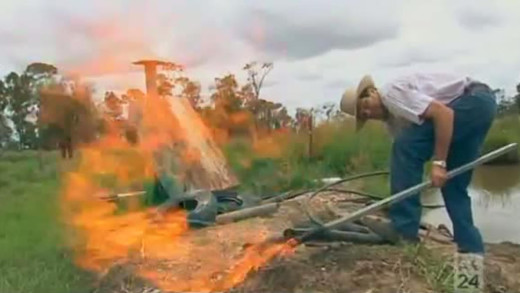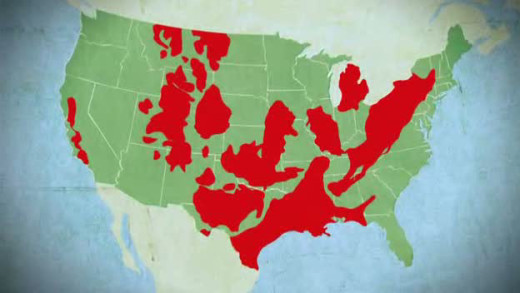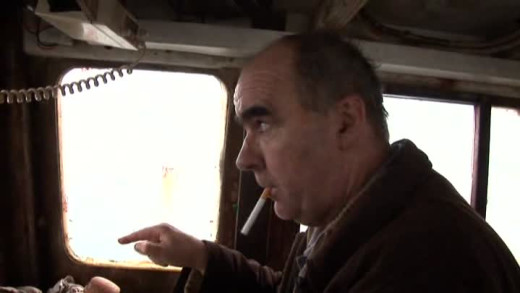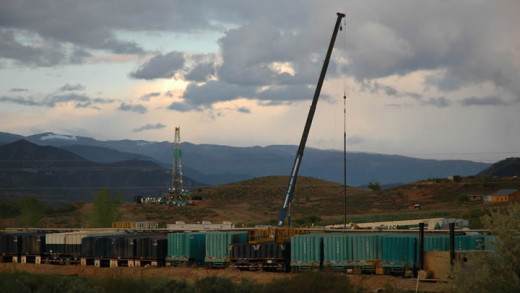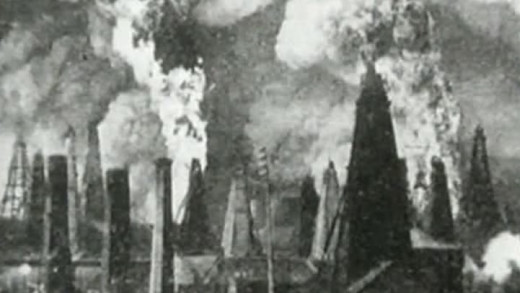Yintah documents the Wet'suwet'en resistance to Canadian colonialism and the Coastal GasLink pipeline pushed by TC Energy. The film follows Howilhkat Freda Huson and Sleydo' Molly Wickham as the Wet'suwet'en people occupy and protect their unceded lands from fossil fuel companies.
How to Let Go of the World and Love All the Things Climate Can't Change travels the globe, from New York City to the Marshall Islands and China, to meet with people who are committed to reversing the tide of global warming. The film examines the intricately woven forces that threaten the stability of the climate and the lives of the world's inhabitants.
The Bentley Effect recounts the story of citizens throughout the Northern Rivers shire of Australia protesting against coal-seam gas extraction. When the community first learns of the news, a critical mass of people from all walks of life--farmers, landowners, mums, dads, activists, and scientists--come together to rally against the invasion. But despite enormous public opposition, the gas industry and the State Government are determined to see their plan through. So the community changes tact and resorts to differing methods of civil disobedience and non-violent protest. This culminates in a music festival of sorts in Bentley, New South Wales, which brings together the community and also spurs them on to initiating political action.
Frackman
Frackman introduces us to Dayne Pratzky, who is looking to build a simple home on his block of land in central Queensland, Australia. But one day the gas company comes and demands access to his land for gas mining. Dayne doesn't want that, but is told he has no right to refuse access to his land, and so begins his transformation into a reluctant activist on a journey that takes him around the world. Through his efforts, we see other people drawn into the battle of fending off rapacious coal-seam gas miners. Frackman presents this story, crossing ideological divides, bringing together an alliance of farmers, conservationists, political conservatives, and a cast of colourful Aussie bush characters, determined in different ways to stop fracking from destroying the land.
For the past four years Submedia has been visiting a camp of the Unist'ot'en of the Wet'suet'en Nation in so-called British Columbia in Canada. The Unist'ot'en continue to fend off intrusions to their land by rapacious oil and gas companies. The threats are large and systemic and involve the very base of life itself. This two-part series of short films document the direct actions that are effective in keeping the threats of oil and gas out. Stopping the corporations physically is paramount, as they'll stop at nothing...
Gasland Part II
Gasland Part II follows on three years later, to continue documenting how the stakes have been raised on all sides in one of the most devastating environmental issues rapidly spreading the globe. This sequel further enriches the argument that the gas industry's portrayal of natural gas as a clean and safe alternative to oil is a lie, where in fact fracked wells inevitably leak over time, and vent exuberantly more potent greenhouse gasses such as methane in cumulative effect, not to mention the continued string of cases of severe water contamination across the United States and even cases as far away as Australia. Gasland Part II follows deeper into these happenings, revealing yet more of an entrenched corporate collusion in the pursuit of exploiting dwindling 'natural resources'...
Sales pitches and PR for gas drilling are quick to dismiss claims that gas drilling and hydraulic fracturing processes are controversial. The direct evidence on the ground throughout the United States tells a different story however -- toxic chemical spills, gas leeching, contaminated water supplies throughout the country, as well as many documented cases of ill health and sickness. As energy companies look to frack elsewhere outside the United States -- in Europe, South Africa, Australia -- The Fracking Façade provides yet more timely evidence of the warnings to heed from fracking and it's devastating ecological impact so far...
Spreading beneath Southlake in Texas, and a chain of other areas throughout, is an oil and gas rich Eldorado called the Barnett Shale field. Mining and energy companies are literally stampeding for a piece of the action with gas drilling and wells sweeping across the United States. Meet The Frackers travels through North America's suburban heartland to show the impact of a process called fracking, which is taking place on a panoramic scale. The parallels apply to Australia and elsewhere, where fracking is also spreading rapaciously with the drive to exploit sources such as coal seam gas. There's many warnings to be heeded from the ecological impact that's already been catastrophic throughout the United States, as one can see...
The Sky Is Pink
As an emergency short film following up Gasland, film maker Josh Fox returns to the urgent crisis of drilling and fracking throughout the United States and the world. Induced hydraulic fracturing or 'hydrofracking', commonly just known as 'fracking', is a technique used to release petroleum, natural gas, shale gas, tight gas, coal seam gas, and other substances for extraction. The Sky Is Pink returns to the issues of water contamination and the cataclysmic environmental impacts caused by fracking to show again first hand evidence of widespread ecological damage and the threat of more to come unless we stop it...
The Great Barrier Reef is one of the great natural wonders of the world. But now the area faces threats not only by changes to the climate, but by direct assaults from industry going to any lengths to extract Coal Seam Gas. This report travels to Queensland to show how at least six major port developments -- either being planned or currently underway -- are directly putting The Great Barrier Reef in jeopardy...
Fracking Hell -- The Untold Story looks at the risks of natural gas development in the Marcellus Shale throughout the United States. From toxic chemicals in drinking water to interstate dumping of radioactive waste that cataclysmically contaminates water supplies, to fracking plans in major population centres including New York City -- are the health consequences worth the supposed economic gains?
With access to undercover filming, The Gas Rush reports on a group of farmers and local townspeople in Queensland, Australia who want to halt the rapacious rush for coal seam gas. With scenes similar to that in Gasland -- corporate deceptions, contaminated water supplies, toxic fracking chemicals, leaky wells and people setting their water on fire -- The Gas Rush illustrates the fact that the drive to extract gas is not only happening in the United States...
America's largest domestic natural gas drilling boom is in full swing and the Halliburton corporation claims it has refined a technique called 'hydraulic fracturing' that extracts natural gas in a "safe and environmentally friendly way". But upon examination, film-maker Josh Fox uncovers a trail of secrets, lies and first-hand evidence of intense water contamination and devastating environmental destruction...
The Pipe tells the story of the people in Rossport, Ireland which have taken on the might of Shell Oil building a pipeline through their community. But when these people look to the government to protect their rights, they find that the government protects Shell instead. The question then becomes: what do people do, when the law prevents them from protecting themselves?
Exempt from environmental protection laws, the oil and gas industry has left idyllic landscapes and rural communities throughout the United States pockmarked with abandoned homes, polluted waterways and aquifers, as well as plenty of sick people. Split Estate zeroes in on Garfield County in Colorado, and the San Juan Basin where more demonstrations of water that can be set on fire are found, but industry isn't just stopping there -- fracking is spreading across the United States, with plans to even drill in the New York City watershed, as well as elsewhere around the globe. As the appetite for fossil fuels increases, Split Estate debunks claims by an industry that assures the public that it is a good neighbour, driving home the need to stop fracking, both here and abroad...
The Prize: The Epic Quest for Oil, Money, and Power is an 8-part series based on Daniel Yergin's book by the same name, that captures the panoramic history of the largest industry in the world and traces it's changing face over the decades. Each episode in the series focuses on an era of oil, from beginning to today; while examining the connections and ramifications of an industry that literally transformed global political and economic landscapes--while continuing to make its mark...

